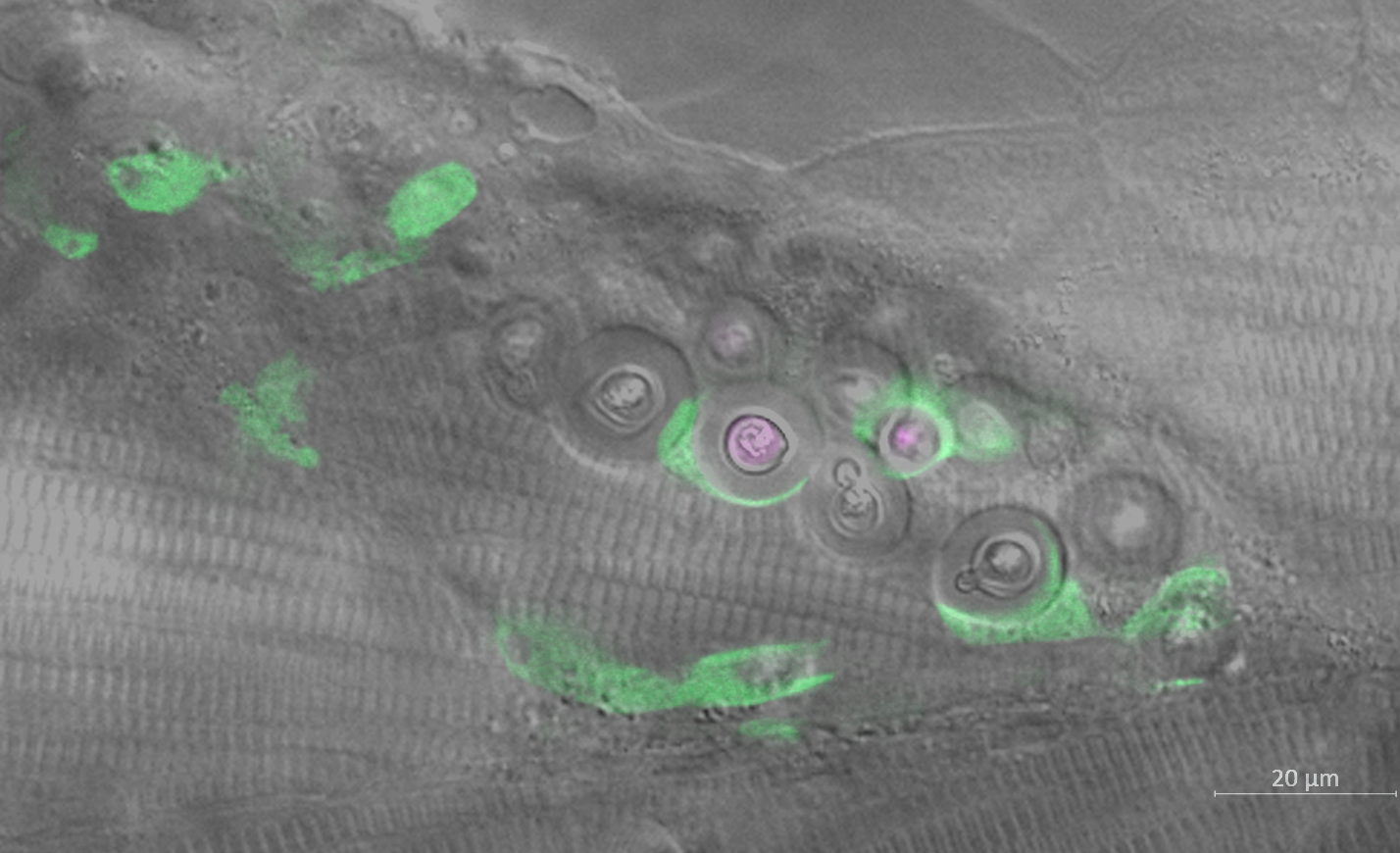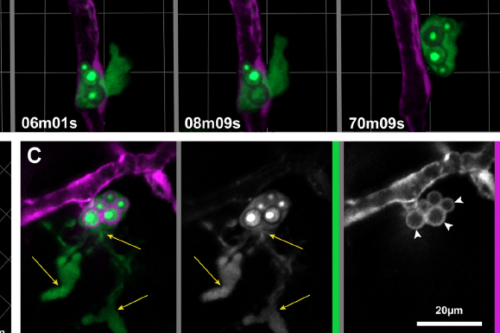
The Davis lab uses the zebrafish larva as a model host to understand how the innate immune system interacts with potential pathogens over time, and how that interaction determines outcomes like microbial clearance, persistence or disseminated disease
Our current major research programs focus on:
Enhancement of cryptococcal virulence by interactions with macrophages
Although phagocytes like macrophages are generally thought of as host-protective, they provide and important niche for host adaptation by Cryptococcus neoformans

Mechanisms of cryptococcal CNS dissemination
Cryptococcal CNS disease can affect both the meningeal space (meningitis) and the brain tissue itself (encephalitis). There are a variety of mechanisms by which the fungus may reach these tissues from the bloodstream.
